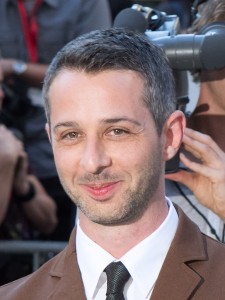
The 2014 Toronto International Film Festival (TIFF) was another hectic ten days in a long line of new beginnings over the last thirty-nine years. It was the first time that King Street was closed to traffic for the opening weekend, and the first time that TIFF took a firm stance regarding Telluride premieres, resulting in the loss of Alejandro González Iñárritu’s Birdman, among others. It was also unusual that a film didn’t come out screaming as the People’s Choice Award and Oscar frontrunner, although The Imitation Game ended up being a rather predictable choice anyway. (Last year, that could have been predicted for 12 Years a Slave on the third day of the Festival, and in 2012 and 2010, Silver Linings Playbook and The King’s Speech steamrolled their competition handily.)
However, TIFF followed a different trajectory towards showcasing a dozen or more films in smaller ways. I was fortunate enough to see twenty-one films over the course of the Festival, of which I especially enjoyed six. This issue of Obiter Dicta contains capsule reviews for most of them. The full reviews will be published on Absurdity & Serenity in the upcoming months.
Grade Breakdown
The Top 6:
- Leviathan (3.5/4)
- Winter Sleep (3.5/4)
- Whiplash (3.5/4)
- Phoenix (3.5/4)
- The Look of Silence (3.5/4)
- A Pigeon Sat on a Branch Reflecting on Existence (3/4)
The Insane Chillers:
Nightcrawler (3/4)
Goodnight Mommy (3/4)
Tusk (2/4)
The Oscar Contenders:
Mr. Turner (3/4)
Foxcatcher (3/4)
A Theory of Everything (2.5/4)
The Imitation Game (2.5/4)
The Newcomers:
Girlhood (3/4)
Pride (3/4)
Love & Mercy (3/4)
Before We Go (1.5/4)
The Disappointments:
While We’re Young (2.5/4)
The Riot Club (2.5/4)
The Burnouts:
An Eye for Beauty (1.5/4)
The Cobbler (1/4)
Awards
Best Director: Christian Petzold, Phoenix (runner-up: Roy Andersson, A Pigeon Sat on a Branch Reflecting on Existence)
Best Performance: Nina Hoss, Phoenix (runner-up: Timothy Spall, Mr. Turner)
Best Supporting Performance: JK Simmons, Whiplash (runner-up: Felicity Jones, The Theory of Everything)
Best Screenplay: Nuri Bilge Ceylan and Ebru Ceylan, Winter Sleep (runner-up: Andrey Zvyaginstev and Oleg Negin, Leviathan)
Best Cinematography: Gökhan Tiryaki, Winter Sleep (runner-up: Mikhail Krichman, Leviathan)
Most Anticipated TIFF Films Still Unscreened: Mommy, Force Majeure, Two Days, One Night, The Tribe
Capsule Reviews
Before We Go (2014) 1.5/4
The Bottom Line: Once + Before Sunset
In Grand Central Station, Nick (Chris Evans), a busking jazz musician, sees Brooke (Alice Eve) drop her cell phone. The two strangers engage in a brief nighttime odyssey: strolling New York City after her purse is stolen, crashing wedding receptions, performing impromptu songs, and killing time before her six am train. Contrived, wispy, and transparently phony, Chris Evans’ directorial debut steals shamelessly from Lost in Translation and its two precursors above. It’s not obnoxiously bad; it’s just a strained, hollow romance that’s totally forgettable. The characters are thinly conceived (Nick is basically the Captain America of chivalry), the soundtrack is full of outdated or overused emotional shorthands, and the script, an eighty-nine-minute walk-a-thon credited to four different writers, is leaden, clumsy, and full of holes (why didn’t Eve go to the police to report the crime?). The lesson is simple: making something even breezily worthwhile requires more than aping the structure and superficial qualities of better films.
The Cobbler (2014) 1/4
The Bottom Line: Being John Malkovich + Grown Ups
An Eye for Beauty (2014) 2/4
The Bottom Line: Saved! + Unfaithful
Foxcatcher (2014) 3/4
The Bottom Line: The Wrestler + The Social Network
Girlhood (2014) 3/4
The Bottom Line: Pariah + An Education + Thirteen

Goodnight Mommy (2014) 3/4
The Bottom Line: Dogtooth + Funny Games + The Orphanage
When their mother (Suzanne Wuest) returns from the hospital after extensive facial surgery, a pair of troubled twins (Lukas and Elias Schwartz, channeling the unsettling ghost girls in The Shining) are convinced that she is someone else. Menacing, revolting, and psychologically damning, Goodnight Mommy (“Ich Seh Ich Seh”) is squirm-inducing stuff, an insidious chiller full of foreboding and malevolent twists with cult potential stamped all over it. First-time Austrian writer-directors Veronika Franz and Severin Fiala repeatedly show their hand, so that the belated reveal feels anticlimactic. Familiar horror tropes abound, from a tomb visit and telling nods, to Catholicism, to jolting displays of Cronenbergian body horror, and a standard childhood science experiment that becomes a torture method. No matter, the film is pure nightmare fuel; its uneasy opening scenes building to a closing gauntlet of terror. I can’t blame the multiple viewers who sprinted for the exit; for fans of extreme cinema, Mommy is a must-see.
The Imitation Game (2014) 2.5/4
The Bottom Line: A Beautiful Mind + Tinker Tailor Soldier Spy
Alan Turing (Benedict Cumberbatch), British mathematician, crytoanalyst, logician, pioneering computer scientist, isolated genius, is hired and brought to Bletchley Park to crack Nazi Germany’s Enigma code during World War II. Director Morten Tyldum (Headhunters) streamlines a fascinating true story into functional prestige filmmaking, serving up Oscar bait in code. It’s too efficient, too calculated to take its audience beyond Turing’s life as conveyer belt, and the script by Graham Moore is bludgeonly repetitive. Cumberbatch bristles with brilliance in a storming, sure-to-be-Oscar-nominated performance, a portrayal of a tortured man and a beautiful mind. Stirring, old-fashioned, and triumphantly tragic, The Imitation Game lacks nerve, diminishes historical events, and fumbles in the dark, but Cumberbatch’s Sherlockian talent dominates among the indecent conservatism. Turing’s bright light may have burned out too soon, but you’ll be deciphering Cumberbatch’s work long after you’ve left the theater.
Leviathan (2014) 3.5/4
The Bottom Line: House of Sand and Fog + Revanche
Not to be confused with the acclaimed 2012 whaling documentary, although likewise dealing with submerged monsters, Leviathan gathers like cautionary thunder about the dangers of fighting city hall corruption. Loosely inspired by the Book of Job and set against the Barents Sea, the grim Russian satire is the story of Kolya (Aleksey Serebryakov), a man striving to protect his home from a behemoth: the belligerent town mayor, who swills vodka like water and swaggers like a despot. Acted and directed by Andrei Zvyagintsev (The Return, Elena) with cynicism, religious fervour, and an unflinching ambition, the incendiary and bone-rattling Leviathan is a trenchant and tough-minded tragedy, a black social comedy, and a thinly-veiled political parable drenched in bitter irony. Zvyagintsev credits Thomas Hobbes’ 1651 tome of the same name for inspiring its outlook on governmental control; its novelistic heft, astonishing cinematography, and commanding performances make for a giant of a film. The shortness of life compensates for its brutish and nasty tendencies, and only the stillness of nature can provide a semblance of peace.
The Look of Silence (2014) 3.5/4
The Bottom Line: The Act of Killing + Life Itself
In 2012, writer-director Joshua Oppenheimer’s The Act of Killing provided startling insight into the banality of evil and the collision of history, film, and narrative while exploring the slaughter of a million people in Indonesia. The Look of Silence, part sequel, part prequel, and a companion piece to the original, plays a crucial role in expanding that canvas. It sees Adi, a traveling optician and the brother of one victim, quietly confronting some members of his community that participated in the death of his family member. These conversations are intercut with his doting mother caring for his infirm father. Gut-wrenching and blood-curdling, although subtler and more subdued, The Look of Silence represents a fight for history; but, watching these films, one feels that the hatred and the violence may not yet be history after all. Victim and victimizer have become intimately and inexorably linked, forming a bond that is both insular and unfathomable. While the somber Silence should not be seen as a standalone work but understood in conjunction with the enraging Killing, its value as a piece of documentary cinema is beyond question.

Love & Mercy (2014) 3/4
The Bottom Line: A Hard Day’s Night + Control
Mr. Turner (2014) 3/4
The Bottom Line: Andrei Rublev + Amadeus
Keen observer Mike Leigh (Another Year) brings his hawk’s eye to a rendering of JMW Turner, the celebrated British “painter of light,” played to perfection by longtime Leigh collaborator Timothy Spall, who won Best Actor earlier this year at Cannes. Strange, thoughtful, and exciting, Mr. Turner, like many of its strongest TIFF counterparts, addresses big questions with small moments. Turner is a grunting vulgarian and complex visionary, and Spall is as majestic as one of Turner’s swirling sunsets. Indeed, Leigh has carefully incorporated actual Turner paintings into the film’s immaculate visuals, making the experience a lot like living inside a masterpiece. Less an explication of the man’s genius than an immersion into its essence, Mr. Turner has a mysterious quality that perfumes every scene. Bold, beautiful, and cantankerous, just like the man, Mr. Turner is a rambling character study and a slow-going showcase for Leigh’s and Spall’s talents; not to everyone’s tastes, but music to the ears of those on its astute and fascinating wavelength.
Nightcrawler (2014) 3/4
The Bottom Line: Taxi Driver + Network
Lou Bloom (Jake Gyllenhaal), an unemployed nocturnal scavenger, has found his calling: capturing the most gruesome mayhem on LA’s graveyard streets through freelance videography, sold to the highest bidder. His tenacity and manufactured poise catches the eye of Nina (Rene Russo), a past-her-prime news shark anxious for improved ratings, forming a poisonous relationship. Electrically overblown and wickedly funny, Nightcrawler has a pungent premise and a potent performance from Gyllenhaal powering it up. Dropping twenty pounds to play the ambulance-chasing hack, Gyllenhaal completes his career rejuvenation in Nightcrawler. Bug-eyed and manically vulnerable, unhinged but precisely pitched, Lou is a magpie, a neon-lit survivalist mauling his way across LA, like a Wes Anderson character whose ambition has warped into a realm of violent sociopathy. Some clunky exposition and on-the-nose thematic monologues result in a rocky start, but Robert Elswit’s vehicular lunacy is a versatile secret weapon, and the last act is deliriously thrilling. Nightcrawler is a tribute to the vile, a morbidly macabre carnival, a ghoulish satire on journalism, the job market, and self-help culture. It’s delectable.
Phoenix (2014) 3.5/4
The Bottom Line: Vertigo + The Lives of Others
Nelly (Nina Hoss) is a disfigured Holocaust survivor who returns to Berlin after plastic surgery to find her husband, Johnny (Ronald Zehrfeld) doesn’t recognize her. Standing to inherit a large fortune in a Swiss bank, she gets roped into a scheme to impersonate herself so that Johnny can collect the money. Ingeniously plotted and downright heartbreaking, Phoenix is a Hitchcockian tale of mistaken identity, a powerful allegory for post-war regeneration, and a high-concept premise executed as a character piece. Writer-director Christian Petzold relies on a few set pieces to convey Germany’s destitution and underplays the pulpiness of his premise, instead focusing on its complex psychological and emotional undercurrents. Hoss communicates through painstaking gestures like a deer caught in the headlights again and again, transforming into the woman who existed prior to the concentration camps. The explosive final scene is as perfect as they come, as if Petzold had built the film around one moment. This quietly devastating work, veiled in vibrant, cohesive, sensitively stimulating power, deserves to be seen by the widest arthouse audience possible.
A Pigeon Sat on a Branch Reflecting on Existence (2014) 3/4
The Bottom Line: L’Age d’Or + 8 1/2
Like Don Quixote and Sancho Panza, two travelling salesmen peddling vampire fangs and rubber masks shuffle through a kaleidoscope of human destinies, while Charles XII, Sweden’s most bellicose king, reappears in the present to continue his series of disastrous defeats. Artfully funny, beautifully filmed, and oddly poignant, A Pigeon Sat on a Branch Reflecting on Existence is a master class in comic timing, employing pacing and repetition with the skill of a concert pianist. For good reason, Roy Andersson (Songs from the Second Floor, You the Living) has been compared to Fellini and called a slapstick Bergman or the heir of Luis Buñuel: he’s bold, beguiling, and unclassifiable. His static, meticulously arranged long takes, shot in deep focus to use background and foreground space, is jarringly unique, and each scene is somewhere between a contemporary art installation and a Far Side cartoon. A deadpan deadlock, a muse on man’s perpetual inhumanity to man, a cat’s cradle of mysteries, and a glorious metaphysical burlesque, it abounds in the kind of sardonic humour intrinsic to life’s absurdities. Shifting between fantasy, reverie, and an impromptu musical number, Pigeon culminates with a blistering indictment of our lack of empathy that audiences won’t soon forget.

Pride (2014) 3/4
The Bottom Line: Milk + The Full Monty
The Riot Club (2014) 2.5/4
The Bottom Line: The Wolf of Wall Street + Tyrannosaur
Two first-year students at Oxford join the infamous Riot Club, a drunken bunch of well-off, hell-raising undergraduates destined for Establishment greatness, who smash, dash, and ruin lives, convinced that money is the answer to all problems. Adapted by Laura Hade from her own play and directed by Lone Scherfig, The Riot Club is a glimpse into the dark side of privilege; a salacious bashing with a thunderous message. It’s well-played by Douglas Booth, Sam Claflin, and especially Max Irons, who wobbles between being seduced and horrified. Cynical, unflattering, and colossally enraging, it lacks any sense of subtlety, and watching entitled teenage boys carouse, devour pheasant, and summon prostitutes is not everyone’s cup o’ tea. Worse, its tone varies wildly as it struggles to make the transition from nonchalant hazing to depravity, and there are editing missteps near the end that jolt the audience out of the film entirely. A letdown from An Education, Scherfig’s Riot is a shrewdly observed satirical cartoon with a bitter sting in the tail; I suspect a director like Lars von Trier or Thomas Vinterberg would have made it a hardcore nightmare.
The Theory of Everything (2014) 2.5/4
The Bottom Line: The Diving Bell and the Butterfly + A Beautiful Mind
While at Cambridge in the 1960s, Stephen Hawking (Eddie Redmayne), a brilliant physicist, falls in love with Jane Wilde (Felicity Jones), a literature student, before a diagnosis of motor neuron disease puts his life in jeopardy. Absorbingly lovely and genuinely moving, The Theory of Everything is elegant and sophisticated, featuring fierce performances and stunning cinematography from Benoit Delhomme. Adapted from Jane’s memoir by Anthony McCarten and directed by documentarian James Marsh (Man on Wire), the boilerplate biopic steps into Hallmark territory on a number of occasions, succumbs to the stultifying gravity of convention, and amounts to a sanded-down and embossed vision of Hawking and Wilde’s thirty-year marriage (miraculously, Jones barely ages despite the passage of many years). In addition, the story shows clear signs of genteel narrative airbrushing and clips Hawking’s achievements to an overview. Nevertheless, Jones is remarkable, and she and Redmayne have an easy, enchanting chemistry, developing a sonorous dynamic that inhabits qualities of affection and sadness. It will melt most of your reservations away.
Tusk (2014) 2/4
The Bottom Line: The Fly + The Human Centipede
In the first of Kevin Smith’s “Canadian horror trilogy,” which is planned to culminate with a moose-themed twist on Jaws, Justin Long plays Wallace Bryton, an abrasive LA podcaster who travels to rural Manitoba in search of a man with tales to tell. What he finds is Howard Howe, a psychotic seafarer (Michael Parks) so obsessed with a long-lost walrus that he abducts young men and surgically converts them into lumbering, flippered monstrosities. Gleeful, self-deprecating, and ridiculously ludicrous, Tusk is off-its-rocker midnight madness, shooting for deranged entertainment and landing as an incomprehensible oddity. It’s fun and sick at times, but Smith fails to rein in Johnny Depp’s shtick, and the screenplay feels like a series of tweets. Earning points for sheer audacity (and for getting hilarious debuts from Smith’s and Depp’s daughters), Tusk’s tonal mishmash is otherwise a misfire of gross proportions, amusing, appalling, and ambitiously shaggy. It’s preaching exclusively to the converted.
While We’re Young (2014) 2.5/4
The Bottom Line: Friends + Margot at the Wedding
Whiplash (2014) 3.5/4
The Bottom Line: Black Swan + Full Metal Jacket
Andrew Neyman (Miles Teller) has high aspirations: to catch the attention of Terence Fletcher (JK Simmons), his upscale conservatory’s legendarily fearsome jazz chair, and to become a hall-of-fame drummer no matter the cost, even if it means flaming out and dying young. Relying on emotional brutality rather than pedagogical instruction, Fletcher is despotic and insulting, spewing vulgar epithets, hammering home the notion that “if it’s not flawless, it’s worthless.” Writer-director Damien Chazelle, with this expansion of his Sundance-winning short, has a similar message: you can be a world-class musician, or you can be a well-adjusted member of society, but you can’t be both. Unromantic and unapologetic, Whiplash is an accomplished work of kinetic cinema, delivering a sharp and gripping rhythm and an energy you’re unlikely to see again this year. The film’s closing sequence is some of the best drumming you’ve ever seen; by the credits, Chazelle has demolished the clichés of the musical-prodigy genre, and Neyman and Fletcher have worked out the theory that pressure turns coal into a diamond. It’s virtually guaranteed to send you out of the theater on an adrenaline high.
Winter Sleep (2014) 3.5/4
The Bottom Line: Scenes from a Marriage + The Shining
Turkish hotel owner Aydin (Haluk Bilginer) has a feud with one of his tenants, a fight with his wife, and his sister over the course of a long winter in the Anatolian steppes. Benevolent, selfish, and judgmental, he experiences a slow-dawning realization that his chest-thumping view of himself as an alpha male has deprived him of love and affection. Rabidly engrossing, ravishingly beautiful, and rich in details, a rock breaks a window, a child kisses a hand, a horse is dragged from a stream, Winter Sleep is the epic Palme d’Or-winner from Nuri Bilge Ceylan (Once Upon a Time in Anatolia). Ceylan spins gold in thought and image with this morality tale of a wealthy man who sins by omission: it’s a rigorous, robust, challenging experience that he’s been building toward with his previous features, as well as an adventurous step above them. The plot grows steadily over many extensive conversations, and the hotel’s inhabitants are ensconced in their own isolation. This is not an easy watch, but it is lyrical and full of unpalatable truths. At the very least, it qualifies as the least boring 196-minute film ever made; at most, it’s a near masterpiece.
